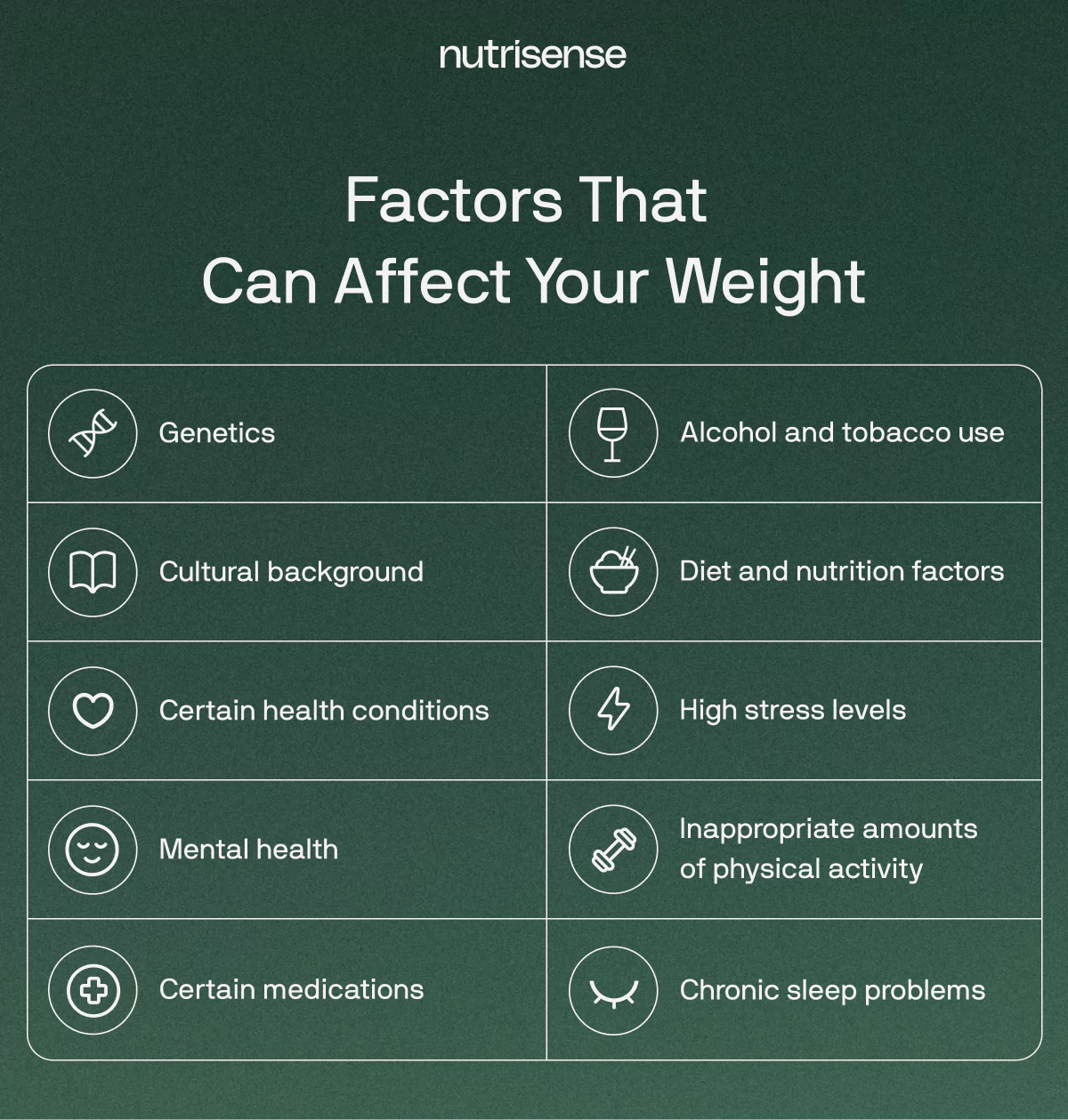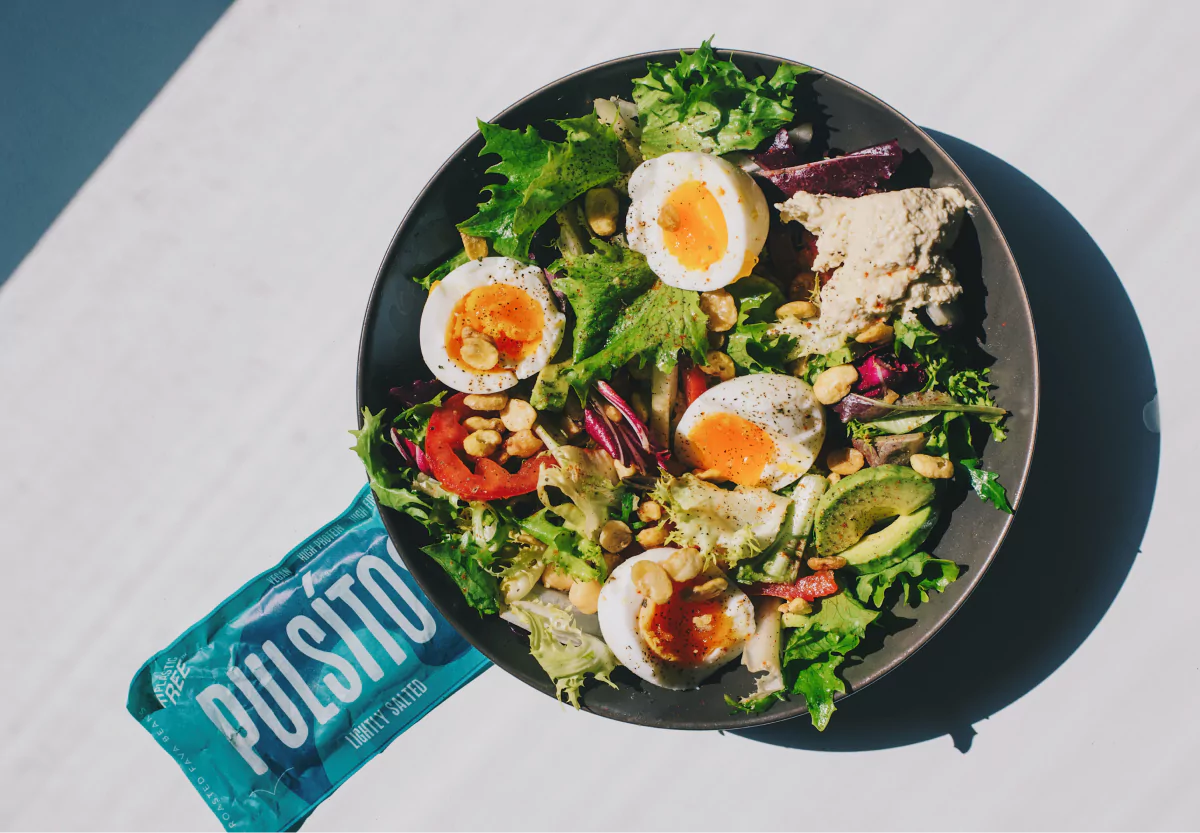How to Lose Weight Without Exercise: 20 Science-Backed Ways

Key Takeaways
- Caloric Quality vs. Quantity: Prioritizing protein and fiber helps manage glucose variability and satiety better than calorie counting alone.
- NEAT (Non-Exercise Activity Thermogenesis): Daily movement like standing, walking, and fidgeting can burn significant calories without a gym session.
- Metabolic Factors: Sleep deprivation and chronic stress (cortisol) can stall weight loss by increasing insulin resistance, making lifestyle habits crucial.
- Caloric Quality vs. Quantity: Prioritizing protein and fiber helps manage glucose variability and satiety better than calorie counting alone.
- NEAT (Non-Exercise Activity Thermogenesis): Daily movement like standing, walking, and fidgeting can burn significant calories without a gym session.
- Metabolic Factors: Sleep deprivation and chronic stress (cortisol) can stall weight loss by increasing insulin resistance, making lifestyle habits crucial.
If you cannot make it to the gym, there are many other ways to lose weight within a realistic timeline that don’t involve lifting dumbbells or jogging on the treadmill. No matter what reason you have for starting a weight loss journey, implementing a few changes in your daily routine can help you on the path to better health, primarily if you’ve found it challenging to lose weight in the past.
How to Lose Weight Fast Without Exercise?

Achieving weight loss without a gym membership is entirely possible. While exercise is a powerful tool for metabolic health, nutrition and lifestyle factors account for a significant portion of weight management. Weight loss is fundamentally about energy balance and hormonal health.
If you are looking to lose weight fast, typically defined as dropping pounds in a week, understand that rapid fluctuations often reflect water weight rather than true fat loss. To lose weight naturally and permanently, you must focus on metabolic flexibility—teaching your body to burn fat for fuel by stabilizing glucose levels.
While GLP-1 medications (like Ozempic) have gained popularity for quick results, research suggests lifestyle interventions remain crucial for keeping the weight off long-term. Luckily, by optimizing sleep, managing stress, and increasing daily movement (NEAT), you can support sustainable weight loss without a structured workout.
1) Start Your Meals With Protein
Breaking your overnight fast with a source of high-quality protein has been shown to help with satiety and blood sugar management. It may even help with diet quality in individuals with obesity. Pairing carbohydrates with protein can also help to curb glucose spikes when eating, which is especially important after a fast since the protein helps slow the release of glucose from the carbohydrates into your bloodstream.
Keeping your glucose regulated may be helpful for weight management since insulin resistance may lead to weight gain over time. Focus on including high-quality protein sources in your diet, such as poultry, fatty fish, plain Greek yogurt, grass-fed meats, tofu, and tempeh for optimal blood sugar response.
Apart from preventing glucose spikes after a fast, there are many studies out there to demonstrate the connection between high-protein diets and weight loss. Protein is essential for muscle-building, promotes satiety throughout the day, and may help reduce excessive snacking.
2) Watch Your Portion Sizes

If you’ve struggled with your weight while eating a nutritious, whole foods-based diet, your portion sizes might be why you haven’t seen the number on the scale decrease. While this may seem obvious, nutritional information on products can sometimes be misleading or difficult to interpret. Studies have shown that exposure to large portions can lead to weight gain, so focusing on portion control and how much food is on your plate is essential.
Individuals who struggle with obesity can benefit from learning how to independently judge portion sizes when seeking to lose weight. Using smaller plates is one simple way to make portion control a little easier.
3) Stay Hydrated
Drinking enough water to support adequate hydration has been associated with weight loss through a few mechanisms. Some studies show that drinking water can help reduce calorie intake, making weight management that much easier.
Remember that staying hydrated isn’t only beneficial for weight loss. It also can help reduce your risk of developing conditions like diabetes, cancer, Alzheimer’s, and many other chronic diseases. For tips to help you get adequate fluids throughout the day, check out our article on the importance of proper hydration.
4) Reduce Added Sugar

It might be one of the most common things you’ve heard if you have tried dieting for weight loss, and for a good reason. Excess sugar intake is one of the leading causes of obesity in the United States. Although eating junk food and sweets can be enjoyable, these foods are often high in calories, added sugar, and trans fat, meaning that cutting them out of your diet can significantly impact weight loss and overall health.
Fortunately, limiting extra sugars and processed foods with saturated fats has many other benefits besides weight loss. These dietary changes may support healthier skin and better triglyceride and cholesterol levels as well as help prevent other chronic conditions.
5) Consider Testing Your Caffeine Tolerance
Studies on the metabolic impacts of caffeine or coffee are conflicting. While some studies suggest that regular caffeine intake may be harmless or even helpful for some people, other studies show that it may cause elevations in cortisol and perhaps contribute to some other hormonal imbalances for certain people.
For those with diabetes, caffeine may make glucose control more difficult. However, it may slightly lower the risk for diabetes in those who aren’t diabetic. Caffeine has a dose-dependent effect, which means that how it affects you may depend on the dose. Consider testing out different amounts or even taking a more extended break to assess how your body might respond to these different elements.
6) Create a Symptom and Food Log

Sometimes difficulty losing weight can be tied to underlying health imbalances and concerns. Tuning into how you feel is every bit as important, if not more important, than a number on a scale. Being able to identify symptoms of concern may help increase your awareness of how daily habits might be impacting how you’re feeling.
Symptoms such as fatigue, anxiety, digestive upset, and poor sleep can sometimes offer added clues to metabolic imbalances. Tracking your personal symptom patterns over time, especially as you try new and different dietary approaches, can be an incredibly powerful tool to support you on your wellness journey.
Focusing on mindful eating and even using one of the various weight loss apps on the market can also help you create a schedule around eating and spot patterns more easily. Consider working one-on-one with a personal nutritionist if you’d like more personalized support in this area.
7) Avoid Sugary Drinks Like Soda or Juice
We’ve already talked about the importance of reducing added sugar, but this one bears repeating. “Don’t drink your calories” is a classic expression repeated in the weight loss space, and unfortunately, this includes soda, juice, alcohol, and most sugary drinks.
If you’re cutting out some extra calories to help with your weight loss, these drinks do not provide much (if any) nutritional value and can be high in calories, which is why they are commonly referred to as “empty calories.” By replacing these drinks with water, you’ll not only be able to reap the health benefits of being adequately hydrated, but you’ll also cut out some extra sugar and decrease the amount of empty calories you may be used to consuming.
8) Get Plenty of Sleep

Sleep is vital for many aspects of your health, including blood pressure, immune health, cognitive function, diabetes risk, cardiovascular disease, and more. That’s why it’s no surprise that insufficient sleep can have a negative impact on individuals with obesity.
Chronic sleep deprivation can also make other weight-loss tactics less effective over time, which is why getting plenty of rest is one of the crucial foundations of healthy weight loss. Prioritizing sleep by heading to bed 30 minutes to an hour earlier each night is a great way to get started.
{{rich-text-cta-wl1="/style-guide"}}
9) Eat More Non-Starchy Vegetables
Including lots of non-starchy vegetables in your diet is rarely bad (as long as you tolerate them), and it’s proven to be particularly beneficial when it comes to weight loss. Studies have shown that increasing vegetable consumption led to measurable weight loss in healthy individuals and also helped lower the risk of weight gain.
Vegetables are full of nutritious vitamins, minerals, and fiber and are generally low in calories, making them an excellent healthy snack for people looking to lose weight. Try pairing carrot or bell pepper slices with protein like hummus for a quick and satiating snack.
10) Limit Alcohol Consumption

Alcohol can lead to inflammation in the body and is another common source of empty calories. It has also been linked to overeating, so it’s only natural that limiting your intake of beer, wine, and spirits can be beneficial for weight loss.
Studies have shown that reducing alcohol consumption was linked to weight loss in overweight individuals. At the same time, excessive alcohol intake may also be a risk factor for obesity, so it’s best to limit your drinks if you’re on a weight loss journey.
11) Use Healthier Cooking Ingredients
Swapping out unhealthier fat options for healthier cooking alternatives like olive oil, avocado oil, or coconut oil can be helpful for weight loss and have a range of other positive health effects. While all cooking oils are high in calories and fat, olive oil and coconut oil may have healthier effects on cholesterol levels and have no significant associations with increased mortality, unlike options like margarine.
One study among women with breast cancer found that a diet enriched with olive oil brought about more weight loss than a standard low-fat diet, showing the positive association of this type of oil on health.
12) Eat Without Distractions

If you’re someone who is always watching TV with dinner or looking at your phone while you eat lunch, you may want to try putting your devices down during meals. Research shows that distracted eating may lead to overeating, which is linked to weight gain.
That’s why mindful eating, or eating slowly can be beneficial when it comes to weight loss. Studies suggest that eating your food slowly can lead to increased satiety, or make you feel full faster. Aim to chew your food thoroughly and pace yourself while eating to support your weight loss journey.
13) Limit Emotional Stress
Many of the items in our list so far have to do with limiting stress of many kinds. Stress can come in the form of nutrient imbalances, poor sleep, and even alcohol consumption. But stress also comes in the form of psychosocial or what some people consider an “emotional” form.
When you experience high-stress levels or chronic stress of any kind, you may notice that you feel physically sick. Chronic stress is a risk factor for obesity and type 2 diabetes, among many other health concerns - which is why practicing relaxation techniques can be beneficial.
Stress can have a direct impact on your glucose levels and can even lead to insulin resistance over time. Taking steps to reduce stress can benefit more than just weight management. It can also help your mental health, support better sleep, and reduce your risk for chronic health conditions.
14) Cook More—Carry Out & Dine Out Less

Ordering take-out may be more convenient, especially if you’re busy during the week or don’t enjoy cooking. Unfortunately, many restaurants use excess butter, oil, and fat, adding many extra calories to your meal. There's also a chance you'll eat larger portions than usual, often exceeding recommended serving sizes.
Because of this, studies have found a link between eating home-cooked meals frequently and better overall health, including lower cholesterol, better metabolic health, and a lower risk of obesity. Eating at home more frequently can help you better control your calorie and macronutrient intake, may help with weight control, and even save money.
15) Weigh Yourself Regularly
This may not seem like a weight loss tip, per se. But it is! When you set realistic goals, you are more likely to stick to your path and avoid feelings of overwhelm that might lead to giving up before you hit your goal. Keep in mind that it’s normal for your weight to fluctuate by a few pounds depending on factors like time of day, hydration level, and exercise.
If you're using a scale to track your progress, try to weigh yourself at an interval that doesn’t feel too triggering and focus on how you’re feeling first and foremost. Keeping track of your weight changes may be helpful but over-focusing on weighing yourself or weighing yourself too often may just add more stress to your plate.
16) Leverage NEAT (Non-Exercise Activity Thermogenesis)

NEAT describes the calories you burn performing normal daily tasks like standing, walking, and even fidgeting. It is a powerful way to burn calories without exercise. Research suggests NEAT can account for a significant portion of your daily energy expenditure. Simply using a standing desk or taking short walking breaks can keep your metabolic rate up without a structured workout.
Walking and other activities you may do throughout the day have been shown to be positive for overall health and can play a big role in weight management over time by keeping you moving and getting your heart rate up.
17) Prioritize Your Fiber Intake
There are numerous health benefits of fiber, including supporting gut health, blood sugar regulation, and cardiovascular health. But not only that, including an appropriate amount of fiber in your diet can even support healthy weight loss.
Including fiber-rich foods in your meals can keep you satiated and feeling full for longer, and it can help reduce inflammation in the body, which is linked to weight gain. The Dietary Guidelines for Americans recommend consuming 22 to 34 grams of fiber per day depending on factors like age and sex. Good sources of fiber include whole grains, non-starchy veggies, beans, legumes, nuts, and seeds.
Bonus tip: Eat your fiber first alongside your protein and before your carbs to help slow your body’s digestion of any carbs or sugars in your meal to help keep your blood sugar balanced.
18) Focus on Whole Foods and Reduce Ultra-Processed Foods

Eating a balanced, whole foods-based diet has many potential health benefits, one of which is weight loss. Whole foods are nutrient-rich and promote satiety. When you focus on whole foods, you may naturally eat fewer simple carbohydrates, ultra-processed foods, and added sugars that can lead to weight gain and overeating. Here are a few examples of whole food sources from each macronutrient group to try adding to your diet.
Whole Carbohydrates
Focus on red or sweet potatoes, low-glycemic fruits, vegetables, whole grains like quinoa and steel cut oats, beans, and legumes.
Whole Proteins
These can come from chicken, fish, eggs, plain Greek yogurt, grass-fed meats, and tofu.
Whole Fats
Try to include a variety of foods such as avocados, nuts, seeds, fatty fish, and olives. Most animal proteins also contain whole sources of fat.
19) Create a Plan for Emotional Eating
Emotional eating is often associated with weight gain. If you find yourself using food to cope with emotions or want to cut down on snacking throughout the day, creating a meal plan and schedule that you can stick to is a great way to hold yourself accountable.
You may also try keeping a food journal and keeping track of the emotions you feel when you experience cravings to help you explore some deeper motivators driving your meal choices.
20) Utilize a Standing Desk

Being sedentary has several negative health effects, and as we already know, standing more often throughout the day can be beneficial for weight loss. If you have the option, trying out a standing or height-adjustable desk is just one way to spend less time sitting if you have a sedentary job.
One study found that using a standing desk didn’t significantly impact work performance, meaning that this alternative to sitting might be helpful to try. Standing desks may also support lower blood pressure and less lower back pain. However, more research is still needed to determine the correlation.
Find the right Nutrisense programto turn insight into progress.
Frequently Asked Questions
How can I lose weight without dieting?
You can support weight management without restrictive "dieting" by focusing on food quality. Prioritizing protein and fiber helps stabilize glucose levels, which reduces cravings and supports natural appetite regulation.
How to lose belly fat without exercise?
Belly fat is often linked to high cortisol (stress) and insulin resistance. Focusing on stress reduction, adequate sleep, and lowering glucose variability can help target this area better than crunches alone.
What is the fastest way to lose weight without exercise?
The fastest way involves a combination of reducing processed carbohydrates (to lower insulin), increasing water intake, and maximizing NEAT (daily movement). However, aim for 1-2 lbs per week for permanent results.
Go Beyond Glucose Data with Nutrisense
Your glucose can significantly impact how your body feels and functions. That’s why stable levels are an important factor in supporting overall wellbeing. But viewing glucose isn't enough. Nutrisense, you’ll be able to learn how to use your body's data to make informed lifestyle choices that support healthy living.
One-to-one coaching
Sign up to access insurance-covered video calls to work with a glucose expert: a personal registered dietitian or certified nutritionist who will help tailor your lifestyle and diet to your goals.
Monitor and measure what matters
With the Nutrisense CGM Program, you can monitor your glucose with health tech like glucose biosensors and continuous glucose monitor (CGM)s, and analyze the trends over time with the Nutrisense App. This will help you make the most informed choices about the foods you consume and their impact on your health.
Find your best fit
Ready to take the first step? Start with our quiz to find the right Nutrisense program to help you take control.

Jordyn has a bachelor’s degree in biology, a graduate degree in Human Nutrition and completed a dietetic internship at the Memphis VA. She's a dietitian at Nutrisense, and has experience working as a clinical dietitian at a VA medical center specializing in oncology and at the Mayo Clinic, working with a wide range of patients ranging from neonates in the NICU to adult ICU.




